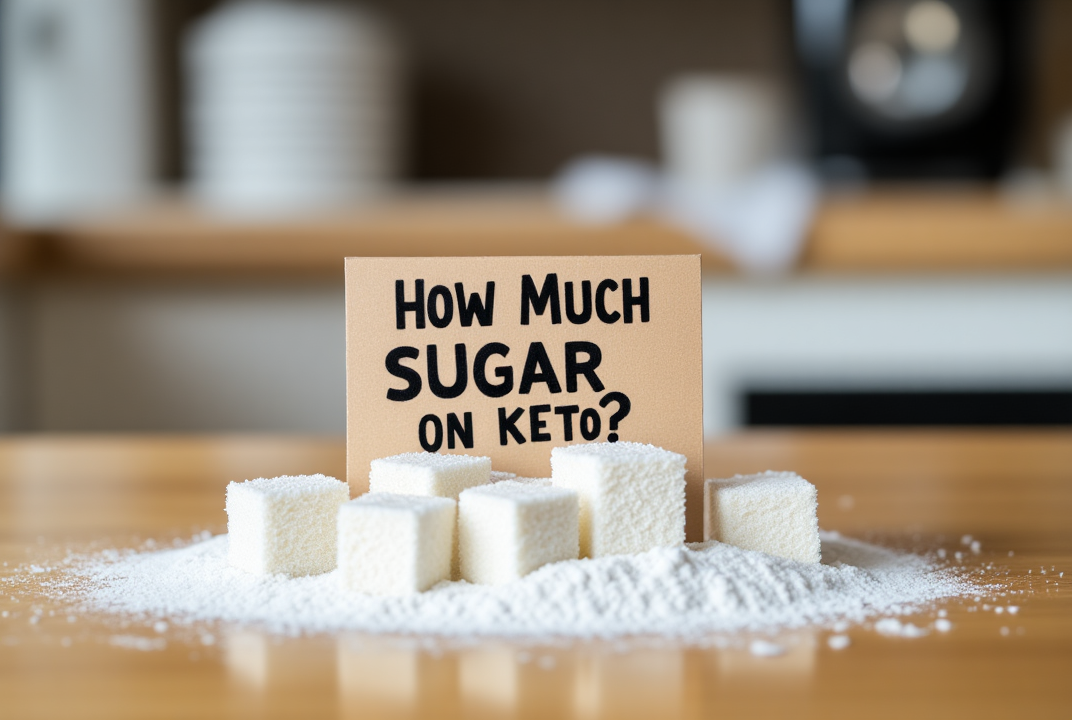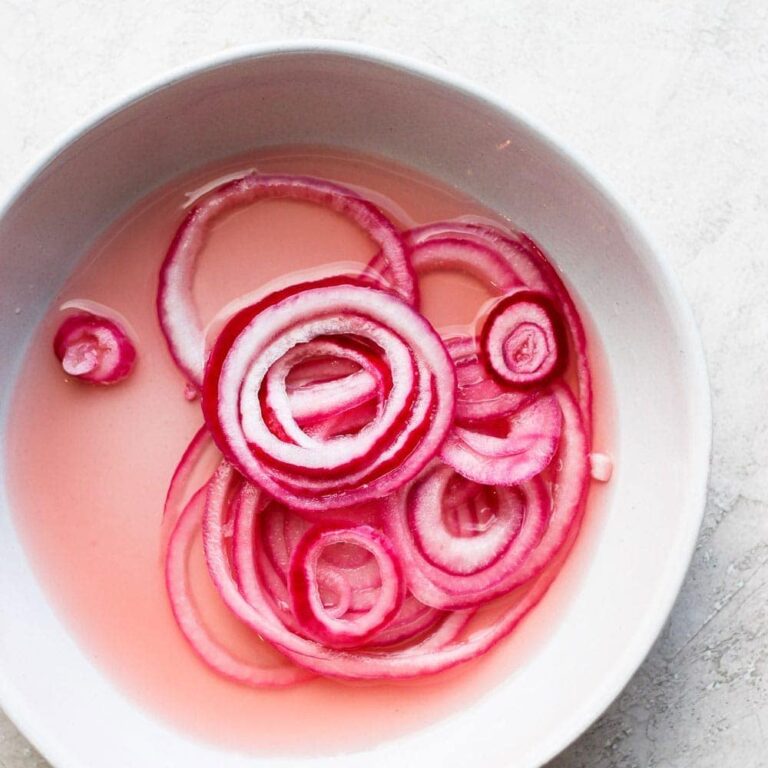
If you’re committed to the keto lifestyle, you already know that sugar is the ultimate saboteur—but just how much is too much? Whether you’re a beginner, a seasoned keto follower, or someone who’s hit a frustrating plateau, understanding the do’s and don’ts of sugar consumption is crucial. In this article, we break down the facts, debunk common myths, and empower you with practical tips to keep your body burning fat, not sugar.
Why Is Sugar Bad For Keto?
Sugar is detrimental to a ketogenic diet because it quickly raises blood glucose levels, prompting the release of insulin and halting the body’s fat-burning process known as ketosis. Even small amounts of sugar can exceed your daily carb limit, making it difficult to maintain the metabolic state required for effective fat loss and stable energy. Consuming sugar not only disrupts ketosis but can also trigger cravings, energy crashes, and hinder your progress toward weight loss or other health goals on keto.
What Happens When You Have Sugar On Keto?
- You Get Kicked Out of Ketosis: Even a small amount of sugar can raise your blood glucose and insulin levels, stopping your body from burning fat for fuel.
- Increased Cravings: Sugar can trigger cravings for more carbs and sweets, making it harder to stick to your keto plan.
- Energy Fluctuations: Consuming sugar often leads to energy spikes followed by crashes, leaving you feeling tired and unfocused.
- Stalled Weight Loss: Sugar intake can halt or reverse your weight loss progress by shifting your body back to burning glucose instead of fat.
- Digestive Discomfort: Sudden sugar consumption after being in ketosis may cause bloating, stomach upset, or other digestive issues.
How Much Sugar On Keto?
On a ketogenic diet, sugar intake should be kept extremely low—ideally under 20–30 grams of net carbs per day, with most of those carbs coming from nutrient-dense vegetables rather than added sugars. Since even a small amount of sugar can quickly use up your daily carb allowance and disrupt ketosis, it’s best to avoid sugar altogether or limit it to trace amounts found naturally in foods like berries. Reading nutrition labels and tracking your carb intake is essential to ensure you stay within your limits and maintain the fat-burning state that makes keto effective.

What Are Common Sources of Hidden Sugar on Keto?
Sauces and Condiments
Many store-bought sauces, dressings, and condiments—like ketchup, barbecue sauce, and salad dressings—contain added sugars that can quickly add up. Even small servings can push you over your daily carb limit, so always check ingredient lists and nutrition labels carefully.
Packaged “Keto” Snacks
Not all products labeled as “keto-friendly” are truly low in sugar. Some bars, cookies, and shakes marketed to keto dieters contain hidden sugars or high-glycemic sweeteners that can impact ketosis. Look for products with minimal ingredients and zero added sugars.
Dairy Products
Flavored yogurts, milk, and some cheeses often contain added sugars or higher natural sugar content than you might expect. Opt for unsweetened, full-fat dairy options and always review the nutrition facts to avoid accidental sugar intake.
Nut Butters
While nut butters can be a great keto snack, many commercial varieties include added sugars or honey. Choose natural, unsweetened nut butters and read labels to ensure you’re not consuming hidden carbs.
Processed Meats
Certain deli meats, sausages, and bacon are sometimes cured or flavored with sugar. Always check the ingredient list and nutrition label to confirm that your protein sources are free from hidden sugars.
Do Natural Sweeteners Kick You Out Of Keto?
Not all natural sweeteners will kick you out of ketosis, but it depends on the type and how your body responds. Sweeteners like stevia, monk fruit, and erythritol have minimal to no impact on blood sugar and are generally considered safe for keto. However, others such as honey, agave, and coconut sugar can raise blood glucose levels and disrupt ketosis, just like regular sugar. It’s important to choose low-glycemic, keto-approved sweeteners and use them in moderation to avoid accidental carb intake that could interfere with your progress.
Can More Protein Off-Set The Sugar?
Increasing your protein intake does not offset the effects of consuming sugar on a ketogenic diet. While protein is essential for muscle maintenance and satiety, it does not prevent the insulin spike or the disruption of ketosis caused by sugar. When you eat sugar, your body prioritizes burning glucose over fat, regardless of how much protein you consume. To stay in ketosis and achieve your keto goals, it’s crucial to keep both sugar and overall carb intake low, rather than relying on protein to counteract the impact of sugar.
What Can I Do To Balance Blood Glucose Levels?
To balance blood glucose levels on keto, focus on eating whole, nutrient-dense foods that are low in carbohydrates and high in healthy fats and fiber. Prioritize non-starchy vegetables, quality proteins, and sources of omega-3s while avoiding processed foods and added sugars. Incorporate regular physical activity, manage stress, and ensure adequate sleep, as these lifestyle factors also play a significant role in stabilizing blood sugar. Consistently tracking your food intake and staying hydrated will further support steady energy and optimal metabolic health.
Does Sugar Kick You Out Of Keto Quicker Than Carbs?
Yes, sugar can kick you out of ketosis more quickly than many other types of carbohydrates because it is rapidly absorbed and causes a sharp spike in blood glucose and insulin levels. This immediate response signals your body to switch from burning fat to burning glucose for energy, effectively halting ketosis. While all carbs can impact your state of ketosis if consumed in excess, sugar’s fast-acting nature makes it especially disruptive, so it’s important to avoid both added sugars and high-sugar foods to maintain steady fat burning on keto.
What Foods Are Essential For Staying In Keto?
Essential foods for staying in ketosis are those that are low in carbohydrates and rich in healthy fats and quality proteins. Focus on non-starchy vegetables like leafy greens, broccoli, and cauliflower, as well as avocados, olives, and nuts for healthy fats. Incorporate high-quality proteins such as eggs, fatty fish, poultry, and grass-fed meats. Bone broth is also an excellent addition, providing electrolytes, collagen, and hydration to support overall health and help prevent keto flu. By centering your meals around these nutrient-dense, whole foods, you’ll maintain ketosis and nourish your body effectively.

Do’s and Don’ts Of managing Sugar On Keto
The Do’s
- Read Nutrition Labels Carefully: Always check ingredient lists and nutrition facts to spot hidden sugars in packaged foods.
- Choose Whole, Unprocessed Foods: Focus on fresh vegetables, quality proteins, and healthy fats that are naturally low in sugar.
- Use Keto-Approved Sweeteners: Opt for low-glycemic sweeteners like stevia, monk fruit, or erythritol when you need a touch of sweetness.
- Track Your Carb Intake: Use a food tracking app to monitor your daily net carbs and ensure you stay within your keto limits.
- Plan and Prep Meals: Prepare your own meals and snacks to have better control over ingredients and avoid accidental sugar consumption.
The Don’ts
- Don’t Trust “Sugar-Free” Labels Blindly: Many products labeled as sugar-free contain hidden carbs or high-glycemic sweeteners that can impact ketosis.
- Don’t Overdo Keto Treats: Even keto-friendly desserts can add up in carbs and stall your progress if eaten in excess.
- Don’t Ignore Sauces and Condiments: These often contain added sugars that can quickly exceed your daily carb allowance.
- Don’t Rely on Processed Foods: Packaged and convenience foods are more likely to contain hidden sugars and unhealthy additives.
- Don’t Skip Reading Ingredient Lists: Sugar can appear under many names, so always scan for terms like dextrose, maltodextrin, or syrup.
Conclusion
Successfully managing sugar intake is crucial for anyone committed to the ketogenic lifestyle, whether your goal is weight loss, improved energy, or better metabolic health. By understanding how sugar affects ketosis, recognizing hidden sources, and making mindful food choices, you can stay on track and enjoy the full benefits of keto. Remember to prioritize whole, nutrient-dense foods, use keto-friendly sweeteners in moderation, and stay vigilant with labels and carb tracking. With the right strategies, you’ll confidently maintain ketosis and achieve your health goals.
Final Thoughts
Looking for a delicious way to stay in ketosis while supporting your health goals? Explore Dr. Kellyann’s bestsellers, where you’ll find a variety of bone broths—including chicken, beef, and french onion—all crafted without GMOs or added sugars. These nourishing broths make it easy to fuel your body and support gut health every day. Visit Dr. Kellyann’s collection to find your new keto-friendly favorite.
Sources
- https://www.healthline.com/nutrition/ketogenic-diet-101
- https://www.medicalnewstoday.com/articles/keto-sweeteners
- https://www.heart.org/en/healthy-living/healthy-lifestyle/lifes-essential-8/how-to-manage-blood-sugar-fact-sheet





